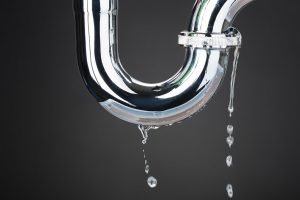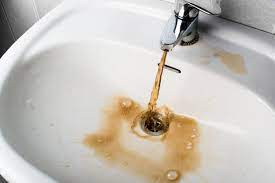Residing in an apartment complex brings its share of plumbing woes, particularly if thorough plumbing checks are seldom conducted. Numerous prevalent issues can jeopardize both your health and the building’s integrity. Key concerns encompass blockages and leaks, the proliferation of mold due to dampness, backups from malfunctioning toilets or sinks, and difficulties with the drainage on floors.
This blog post discusses five of the most common plumbing issues in apartments buildings, so you will be able to identify them quickly if they come up at your residence!
Table of Contents
Bathroom Flooding and Ceiling Damage

If you live in an apartment, then you know bathroom flooding is one of the most common plumbing issues. It can be tiring to drain out the standing water that has accumulated your entire bathroom floor as well as clean up the debris that may have accumulated with the water (hair, shampoo sachets. etc.)
On the other hand, ceiling damage can be a result of this issue too because water from the flooding will seep through your floors and drip down to the ceiling on the rooms below.
The major cause for this issue is usually due to toilet paper, napkins or tampons clogging up the pipes in your in the sewage system or an overflow due to a faulty toilet or sink.
To prevent this issue from happening, you should be sure to place your waste in the bin and not in your pipes so you don’t end up causing a clog that might cause a back-flow.
Unfortunately,, there are times when pipes burst and cause flooding, so it may not be possible for you to predict plumbing issues before they happen. In these cases, we recommend regular inspection from a reliable plumber so they can catch problems before they get out of hand.
Leaking Water Heater Tanks
Water heater tanks are one of the things many of us can’t live without, especially if cold showers isn’t your thing. As a result, it’s essential for them to be in good working condition and not leaking since they can ruin the flooring below or even lead to mold growth from moisture being trapped in your home!
You might have this issue if you hear a constant hissing noise that gets louder when water is heated up because as pressure increases inside of the tank, gas bubbles will start escaping out through any rust spots on the pipes which may cause these noises. Identifying strange plumbing sounds can help you detect potential problems before they escalate. In this case, the hissing noise could indicate that there is corrosion and rust inside the water heater, which may lead to leaks or other malfunctions down the line. It’s important to address these issues promptly, as they can lead to costly repairs if left unattended.
To fix this problem, you need to check all connections joints for leaks and look at other parts of your water heater’s piping system too so there are no hidden problems with plumbing lines going into the wall or ceiling.
Leaky Plumbing Pipes

If you’ve just noticed a leak under your sink or bathtub, it may be due to corroded pipes which can lead to mold growth and other issues. Leaky pipes are usually a difficult problem for many tenants and should never be a DIY project!
The good news is that all of these problems are best solved by calling in an expert plumber who will assess the extent of any damage and then fix the cause of the issue before plumbing leaks can get worse.
Dripping Faucets
Does your faucet still drip even after you’ve tightened everything up? If so, then your faucet was probably installed incorrectly in the first place.
If this is the case, then you can just simply unscrew the faucet, remove it from its position, adjust it properly and screw it back in.
Another possible reason why your faucet is still dripping even after you’ve tightened everything up is because of a leaky washer or O-ring that needs to be replaced.
To replace this O-ring start by taking off the faucet again, then use a screwdriver to remove the washer or O-ring and replace it with a new one. Simple as that!
Rusty or Dirty Water

Another common problem homeowners experience in their apartments is dirty or rusty water coming out of the faucet. This is a result of corroded piping that needs to be replaced.
To fix this problem, turn off your water supply and drain it completely by opening up all the taps in your home until you see rust colored water come out from the tap. Once done, wait for about an hour before turning on your main plumbing system again so as not to get any rust into fresh pipes and other fixtures when they are filled with good-quality drinking water again after being cleaned.
If the problem still persists, then this might be serious and will require the help of a professional.
In Conclusion
Apartment buildings are a common living situation for many people. Consequently, plumbing problems can be easily overlooked as they’re not seen on a daily basis. However, these issues have the potential to cause serious health and safety concerns if left unaddressed.
The blog post has discussed the most common plumbing issues in apartments, so keep an eye out for them! If you live in an apartment building and want more information about preventing or fixing these types of issues, contact us today.

